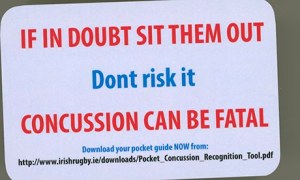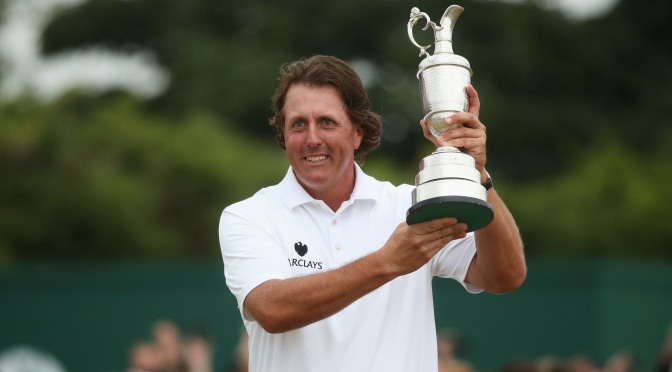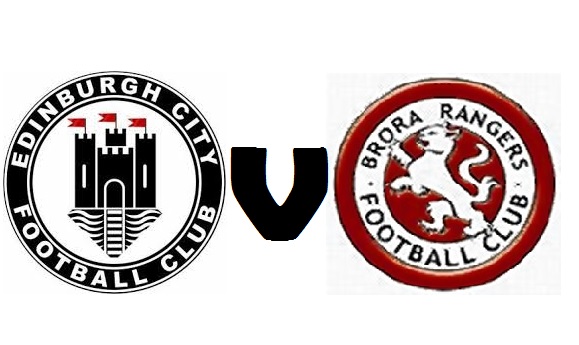Monthly Archives: April 2015
Major Talking Point: Concussion in Rugby
Concussion injuries in rugby are becoming more and more frequent. So frequent in fact that, that the safety of the game is being seriously questioned.
According to Dr Willie Stewart, an expert on head injuries and concussions: “One or two players every Six Nations will go on to develop dementia”.
The subject has come under severe media scrutiny since a number of high profile incidents involving rugby players. Those who watched the 2015 Six Nations and witnessed Wales winger George North being assessed for concussion, getting the all clear to return to the playing field and then being completely knocked out minutes later will realise the startling realties and dangers involved in the sport.
But how can this be allowed to happen?
The “five minute test” employed by medical doctors for pitch side concussion assessments is the main measurement tool for determining whether a player is concussed. This involves a series of basic questions and balance tests that need to be passed for a player to continue playing.
However the test has been rubbished by many, including Irish doctor Barry O’Driscoll, uncle to Irish rugby legend Brian.
Barry sat on the International Rugby Board (IRB) medical committee before resigning over his views on the subject. He has voiced his concerns over the current concussion procedures, and just last week sent an open letter to World Rugby Chief Brett Gosper.
“The test does not work, it does not the players and is also open to abuse”
And there is clear evidence to his side of the argument. George North who has suffered three concussions in less than five months had been ordered to take an extended break away from the game for at least a month to allow for a full recovery. Mike Brown is also out of action because of concussion related injuries, in the fear that further damage may lead to brain damage.
The increased am ount of concussion comes as a result of the increased physicality of the sport. Since 1999 the amount of tackles on average made in a game has risen from 160 to 220. Players are now on average a stone heavier in weight since the professionalism of rugby. This may have led to an increased level of competitiveness as players battle brain and brawn, but it is clearly risking their well-being as well.
ount of concussion comes as a result of the increased physicality of the sport. Since 1999 the amount of tackles on average made in a game has risen from 160 to 220. Players are now on average a stone heavier in weight since the professionalism of rugby. This may have led to an increased level of competitiveness as players battle brain and brawn, but it is clearly risking their well-being as well.
“The outcome is that more brain damaged players are being returned to the field.”
But it is not just professional players that are suffering. Just last week the horrific news of 25 year old Nick Tooth’s death came to the public attention as a result of a head clash in a game of rugby. The player had been playing for his club side Narrabi Blue Boars in his native Australia. Despite surgery on the wound, he died shortly after.
That means that a total of five kids and two adults have died from head injuries playing the game they loved since 2006. This worrying fact combined with the media attention the issue has received will inevitably mean that parents will prevent their kids from participating in rugby.
Major injuries suffered playing rugby are not rare, Scotland’s Thom Evans and Joe Ansbro being prime examples within the last 4 years of players who have had their careers shortened by serious back injuries. That means it is only a matter of time before a serious life-threatening head injury to a rugby player occurs, unless the procedures for concussion are changed.
The Shinty Season So Far
The Shinty season is well under way, and so far is providing some thrilling entertainment.
Runners up in the previous two seasons, Lovat Shinty Club, are top of the Marine Harvest Premiership with three wins from six, one point clear of Kyles Athletic. So far the surprise package of this year’s league, the question is whether they can remain consistent enough to make a challenge for the title.
Newtonmore, who have dominated the league over recent seasons are well placed in third position with three wins from four.
Both teams have home fixtures this weekend with Newtonmore taking on Inveraray and Lovat hosting Kyles Athletic.
Scottish Hydro Camanachd Cup Champions from last year Kingussie are currently placed eighth in the league after four games played. They currently sit five points adrift of league leaders Lovat.
Hibs Close Gap on Rangers
The race for second place in the Scottish Championship heated up last night as Hibs secured a 3-1 victory away to Livingston.
The win sees the Easter Road side close the gap to within a point of Rangers with two games to play.
Hibernian midfielder Scott Robertson gave the visitors an ideal start after firing in from close range on eight minutes, but the lead only lasted briefly as Myles Hippolyte volleyed home.
After suffering Scottish cup semi-final heartache at the weekend against Falkirk, Hibs looked intent on restoring pride in the league and bounced back to take the advantage through striker Jason Cummings.
The Edinburgh side always looked threatening, and when the Livingston cause was worsened by Darren Cole’s sending off, the result was all but determined.
Hibs were awarded a penalty after McGeouch was appeared to be fouled in the box, however Kyle Jacobs was denied by Livingston keeper Jamieson.
Striker Malonga then made sure of the result as he rounded off a smart solo effort to move two goals clear at 3-1.
Livingston are now precariously placed at the bottom of the table, with nearest rivals Alloa three points clear.
Rangers are due to play Hearts on the last day of the season, and if results go as planned, that fixture could prove crucial in the race to second place.
The teams that finish third and fourth will play over two legs to decide who then plays the second placed side. The winner of that fixture will go on to play the second bottom team from the Premiership for a place in Scotland’s top division.
Mickelson to play The Scottish Open
American Phil Mickelson has confirmed that he will play in the Scottish Open held at Gullane Golf Club prior to The Open at St Andrews.
This will be the American’s sixth consecutive appearance at the Scottish Open.
Mickelson, 44, won the tournament in 2013 at Castle Stuart before going on to win the Claret Jug at Muirfield the next week.
The left hander, who recently finished runner up in The Masters to Jordan Spieth will be hoping his good form continues.
In a press conference the American stated: “Winning the Scottish Open was a breakthrough that really helped me the next week at The Open Championship.”
Edinburgh Receive Double Signing Boost
Edinburgh Rugby fans have been given a double signing boost ahead of next season as two players have pledged their short-term futures to the club.
Scrum half Nathan Fowles and lock Alex Toolis have both put pen to paper to stay with the Murrayfield side after joining the club this season.
Fowles, who joined the club on loan from Sale Sharks and was named immediately on the bench just hours after signing, has committed until May 2016.
Scottish qualified Toolis, who signed at the start of the 2015 season alongside twin brother Ben, has signed on for another season.
It comes as welcome news for the Edinburgh side, who recently secured their place in the European Challenge Cup final against Gloucester, and in doing so became the first Scottish side to reach a major European final.
Rugby: Barbarians 97-31 Heriots
The Barbarians ran out comfortable 97-31 winners match against Heriots staged at Goldenacre last night in a one-off match staged to celebrate the 125th anniversary of both clubs.
The invitational team, otherwise known as the Baa-Baas, were captained by former Scotland international Gordon Ross for the match and featured a number of professional players from Scotland.
Played in front of a healthy crowd, The Barbarians opened the scoring in the second minute thanks to some typically expansive play between the backs.
Namibian winger Chrysander Botha scored four tries within the first half to give the visitors a commanding 45-19 lead at half time.
The rout continued after the break as a total of 20 tries were scored over the course of the match in an open game.
The game was not all one sided however, as Heriots grabbed five of their own with winger Colin Goudie scoring the pick of them with a lovely chip and run through the Barbarians defence.
Inevitably the strength in depth of the mainly professional Barbarians side proved too much to handle for the Heriots side as the score finished 97-31.
As if the loss wasn’t disappointing enough for the Heriots players, substitute Davy McGregor was rushed to hospital for surgery on his ear after suffering a nasty injury. A photo of which was published on social media after the game.
Scorers: Heriot’s – Tries: Learmonth, Goudie 2, Syme, Mulligan. Cons: Wilson 2, Mustard. Barbarians – Tries: Botha 4, Adams 3, Pritchard, Hart, MacLeod, Thomas, Jones, Price, Summerhill, Lamositele. Cons: Prichard 6, Thomas 4, Ross.
Heriot’s: C Simpson; H Boisseau, L Steele, M Learmonth, C Goudie; S Edwards, G Wilson; N Borel, S Mustard, S Cessford, R Nimmo, J Syme, J Ritchie, J Hill, J McLean. Subs used: D McGregor, JP Ward, B Cogley, C Mulligan, D Sommerville, G McNeish, K Buchan, D McMaster, J Turley.
Barbarians: J Pritchard; C Botha, S Naqelevuki, A Thomas, J Adams; G Ross, G Hart; A Croall, M Mayhew, B Douglas, S MacLeod, K Low, C Morgan, C Jones, M Hankin. Subs used: N Cochrane, A Brown, T Lamositele, L McGlone, J Eddie, A Price, I McKinley, A Summerhill.
Major Talking Point: Glasgow 2014 Legacy
Prior to the 2014 Commonwealth Games there was a great sense of opportunism. A once in a generation event for both athletes and the general public to showcase Scotland, with the eyes of the world watching.
Thousands applied to volunteer, with well over a million applying through the ballot for tickets. The public enthusiasm for the Glasgow Commonwealth Games was like nothing ever experienced before.
Marking the first time the competition had been held on Scottish soil in over 25 years, the patriotism that swept across the nation over the competition period and the uptake in interest that was experienced heled contribute towards one of the most successful Commonwealth Games to date.
The Games cost well over £530 million in total to host the games which featured just under 5,000 competitors from 71 different countries. Purpose built venues came in the shape of Tollcross Swimming Centre and The Chris Hoy Velodrome, in the hope that a successful competition would inspire the next generation of athletes.
That very idea came to fruition with Scotland achieving gits most successful performance ever at a Commonwealth Games, claiming 19 Gold medals and a grand total of 53 medals overall. Amongst those performances came fairy tale stories – whether it was twenty one year old Ross Murdoch storming to an unexpected god medal in the 200m breaststroke or 13 year old Shetlander Erraid Davies winning bronze.
 These impressive performances and success stories helped arouse national pride throughout the country and grabbed the imagination of millions watching. But has there been signs of this legacy taking shape?
These impressive performances and success stories helped arouse national pride throughout the country and grabbed the imagination of millions watching. But has there been signs of this legacy taking shape?
That was exactly the same question that was asked when Scotland first hosted the event in 1970. Similar to last year’s Commonwealth Games, a lot of money was invested in the hope that the competition would inspire the next generation of sporting superstars. The competition was an overall success, with Scottish athletes such as Liz McColgan and Lachie Stewart triumphed in front of hordes of Scottish fans at Edinburgh’s Meadowbank stadium.
Those athletes became heroes to younger generations, and created something for the public to aspire to. With Scotland achieving its most successful performance at the Glasgow 2104 games, and now possessing its most impressive sporting infrastructure ever, it will surely only encourage kids of all ages to strive to become the best at what they do.
Preview: Brora Rangers v Edinburgh City
This Saturday sees the first fixture played between Edinburgh City and Brora Rangers in the highland/lowland play-off.
The new play-off system, played over two legs, will determine who earns the chance to play in the professional leagues.
Introduced this year, the system has been introduced to offer the winners of the Highland and Lowland leagues the opportunity to earn promotion to the professional ranks. The overall winners of the tie will then play the bottom side in Scotland’s league two, currently Montrose.
Designed to offer a fairer method for promotion and relegation from Scotland’s professional leagues, the new system has been scrutinised.
Brora chairman John Young has fears regarding the financial pressures associated with making the step up into the professional structure: “I would think 75% of clubs have concerns”.
Brora, a small highland village situated in Sutherland has a population of only 1200, and there are fears that the commitment involved in travelling across the country for away fixtures may deter some of the playing squad.
If Brora were to earn promotion to the SPFL they would face journeys to Berwick Rangers and Annan amongst others.
Young, however, reassured the fans that the team will be trying their very hardest to win: “But we have to take part and we’ll do our best to get into the SPFL”.
The game is being held at Edinburgh Meadowbank stadium, with the return fixture played in Brora on the 2nd May.
Ticket information about Saturday’s game can be found on the Brora Rangers website.
Scotland’s Women discover opponents for 2017 Qualifying Campaign
Scotland’s women have discovered who their opponents will be for the 2017 European Qualifiers.
They will face Iceland, Belarus, Slovenia and Macedonia over the course of qualifying with the winners and runners up of the group both qualifying for the main tournament.
The Scots, ranked 21 in the world, were seeded second in the draw behind Iceland.
Sixteen teams will qualify for the tournament being held in the Netherlands.









